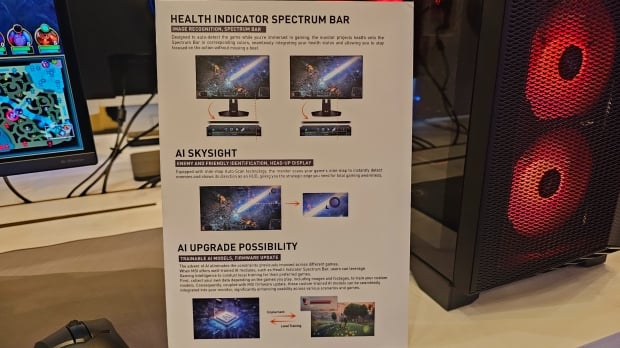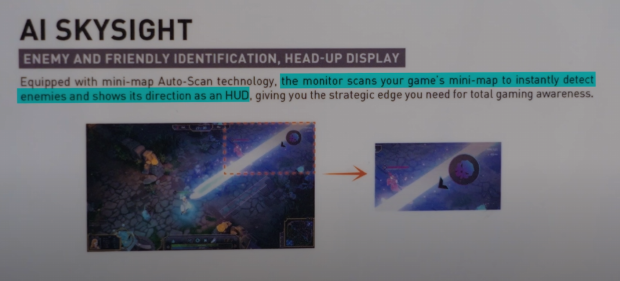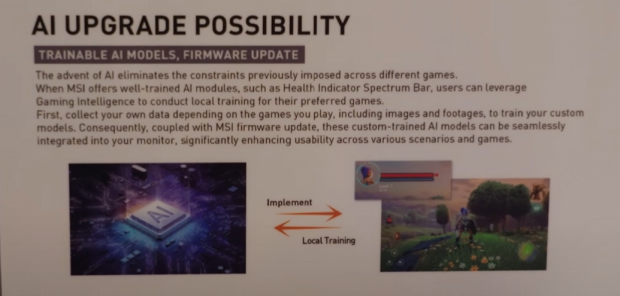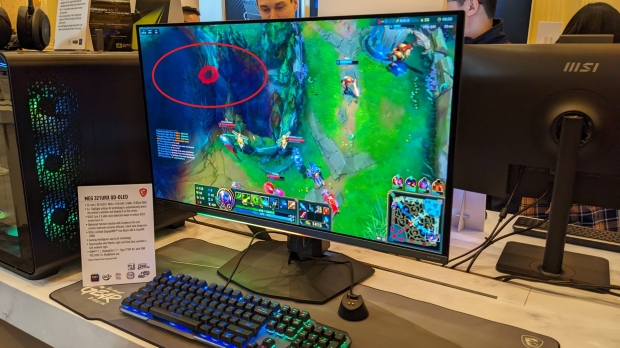CES 2024 was definitely the year of the QD-OLED gaming monitors, with multiple companies making announcements for a range of different displays at various refresh rates and response times.

One of the biggest players in the space, MSI, announced a new fleet of QD-OLED gaming monitors, and one of the features attached to one of these monitors deserves the spotlight. MSI's MEG 321URX QD-OLED was demoed on the CES showroom floor, and it features a built-in AI processor designed to scan the game that is currently being played on the monitor and provide visual notifications such as enemy position and character health.
The new monitor has raised some important questions about how AI will be used in the future of gaming, as the MEG 321URX QD-OLED's feature, which MSI calls SkySight, pops up these visual indicates completely independent of your operating system, or game files - meaning it circumvents any potential anti-cheat software.

MSI demoed this new technology with a game of League of Legends that showcased the AI scanning the frame, detecting enemy champions that were appearing on the mini-map, and then giving a visual indicator to the player in which direction the enemy champion was located. In this scenario, and many others like it, a player using this monitor wouldn't need to be continuously, or at least not as much as they were previously, checking the mini-map for any signs of enemy players as the monitor has done that for them.
Picture this same scenario playing out in Counter-Strike, Apex Legends, Valorant, or any other highly competitive title that uses a mini-map. MSI argues its new SkySight technology isn't "cheating" as all it's doing is monitoring the mini-map and using data that's already present and that a skilled player should have already seen.

It doesn't stop there. MSI also stated that it will be rolling out a feature that allows gamers to train an AI model on their favorite game to unlock new advantages. The training will be done on the player's PC, but after it's complete, the AI neural processor will handle the rest of the work. MSI has also said that it plans on training its AI model on other popular eSports games such as DOTA 2 and Counter-Strike: Global Offensive 2.
Whether you disagree with the use of the new AI technology in competitive games or not (and if you don't, you should ask yourself - how this is any different from a prohibited plugin?), there is something everyone should agree on. This is just the beginning of AI coming into gaming.
MSI hasn't said when it will be exactly releasing the MEG 321URX QD-OLED, but reports indicate some time in late February for a price of $1,199.



![Photo of the $25 PlayStation Store Gift Card [Digital Code]](https://m.media-amazon.com/images/I/41cEZpeUA1L._SL160_.jpg)